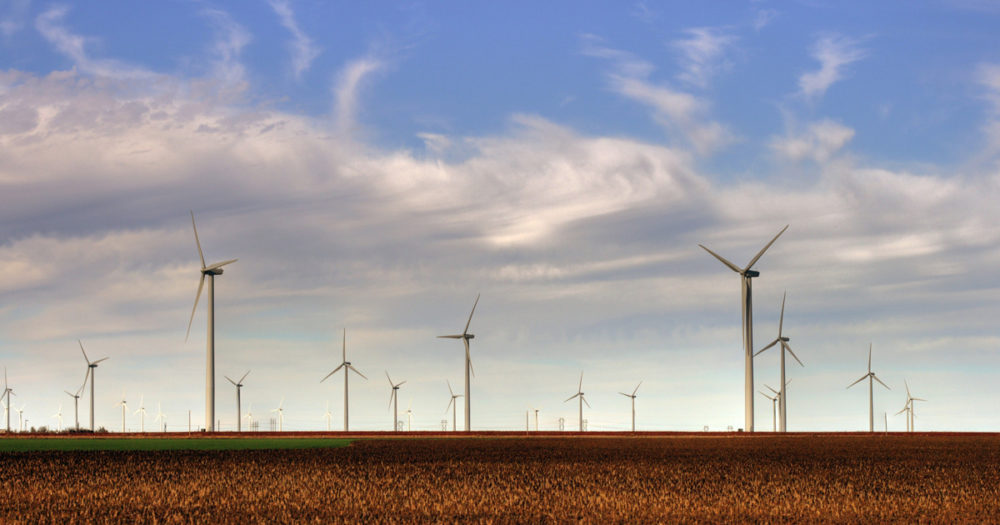The Senate Energy and Natural Resources Committee voted Tuesday to approve the appointment of Bernard McNamee to the Federal Energy Regulatory Commission (FERC). The final confirmation vote now moves to the full Senate. McNamee’s confirmation threatens to transform FERC – with a longstanding tradition of political independence – into another arm of the Trump Administration, paving the way for Trump’s pro-fossil fuel agenda, a move that could impact all of us.

If confirmed, Bernard McNamee’s pro-fossil fuel agenda threatens the independence of the agency and our clean energy momentum.
FERC is charged with ensuring that power markets are competitive, nondiscriminatory, and protect consumers. To carry out this mission, it is specifically designed to be politically independent. McNamee, in contrast, has a long history of advocating a pro-fossil fuel, anti-renewable energy agenda. He was a key player in the Trump Administration’s first (and failed) attempt to force FERC to bailout uneconomic coal and nuclear plants and has called for a unified campaign to support fossil fuels, claiming that renewables somehow “screw up the physics of the grid.” The Trump Administration’s second bailout proposal will almost certainly come before FERC in the near future, also creating an obvious conflict of interest.
Despite this, Senator Murkowski dutifully rushed his appointment through the committee, expressing no concern about McNamee’s political past. If the full Senate fails to reject McNamee and the Trump Administration’s blatant attempt to turn FERC into a rubber stamp for this Administration, it will affect all of us. Here’s three reasons we should all be concerned:
1.) Markets for renewable energy, particularly wind energy, will shrink.

Kansas has attracted close to $10 billion in investments from the wind industry, supporting thousands of jobs. It and several other states stand to lose ground on this economic activity if McNamee is appointed to the Federal Energy Regulatory Commission.
The benefits of wind energy are undeniable: rural investments, jobs, land and tax revenues, and low-cost clean energy. States like Iowa, Kansas, Oklahoma, and others across the Midwest are taking advantage, attracting billions of dollars in investment, thousands of jobs, and million in state and local revenue. In Iowa and Kansas alone, the wind industry has invested more than $20 billion, supporting upwards of 12,000 jobs. The success of this wind industry depends on fair access to wholesale energy markets and an interstate transmission system to carry that electricity to the markets. FERC has a big hand in regulating both of those. If FERC tips the scales in favor of fossil fuels, those markets become less attractive and wind investment will slow. As solar becomes a more dominant resource across the U.S., it will face a similar disadvantage with a Trump-captured FERC.
2.) Those suffering the effects of burning coal will continue to suffer.
Make no mistake, McNamee’s appointment could provide a direct path through FERC for Trump’s attempt to bailout the nation’s uneconomic coal fleet. A lot of these plants are the same dirty polluters that are so old they were exempted from Clean Air Act compliance, meaning they lack modern pollution controls. This means coal plant communities and downwind states like Maine (also known as “the tailpipe of the nation”) will continue to suffer the effects of this pollution as these coal plants receive consumer-funded subsidies to keep operating.
3.) Our electricity costs will go up.
The simple economic truth is that coal and nuclear plants are struggling because they’re more expensive to operate than other resources – namely wind, solar, and natural gas. If FERC becomes a rubber stamp for the Trump Administration and its intent to provide out-of-market subsidies to coal and nuclear, this money will need to come from somewhere. Ultimately it will come from our wallets – most likely through rate increases but possibly through a special tax. Either way, we pay.
McNamee’s confirmation and the politicization of FERC represent a real threat to our transition to a truly clean, affordable, and sustainable electricity supply. And a Trump-captured FERC biased against modern renewable energy technologies would have very real impacts on people across the country. The Senate should reject McNamee’s nomination and stand up for free and fair electricity markets that benefit all of us.

